Education
Enugu Radio School: Bridging the Education Inequity Gap
Published
6 years agoon
BY EKENE ODIGWE
Education gives us an understanding of the world around us and offers the opportunity for us to apply knowledge wisely. Irrespective of tribe, race, creed, and gender, education makes it possible for people to stand out as equals with other persons from different walks of life.
Currently, the global world is facing a crisis — one that is killing people, spreading human suffering, and upending lives. But this is much more than a health crisis. It is a human, economic and social crisis. The Coronavirus Disease (COVID-19), which has been characterized as a pandemic by the World Health Organization (WHO), is attacking societies to their core.
Unfortunately, the educational sector is a part of the receiving end paying a huge price. According to UNESCO, an estimated 1.725 billion learners have been affected as a result of school closures, representing about 99.9% of the world’s student population as of April 13th, 2020.
In Nigeria, over 80 million learners are affected by the shutdown of schools since March 2020. The educational system has been devastated and children from lower socio-economic families are bearing the brunt.
The pandemic has also forced many businesses to temporarily shut down. To cushion the effects, the world is embracing technological innovations. Virtual interactions are increasingly adopted to replace face-to-face engagements and limit the total disruption to many sectors.
As a result, education channels have changed dramatically, with the distinctive rise of e-learning, where teaching is undertaken remotely and on digital platforms. Classes are now held on virtual platforms like Zoom, Google Classrooms, Articulate 360, Lectora Inspire, among others.
But not every student can access these platforms
As pleasant as this solution is, it is sad that students from under-served low-income communities are left out and unable to access learning during this period likely due to financial limitations, data expenses and limited technological savviness
For underprivileged children, this crisis is widening rather than narrowing the learning gaps.
To mitigate this challenge, Enugu State, in April 2020, embarked on airing school lessons two hours daily on the radio for primary and secondary school students. According to the Commissioner for Education, Professor Uchenna Eze, the project was launched by the ministry to assist pupils and students to keep up with the school curriculum.
The Enugu Radio School, done in partnership with the Federal Radio Corporation of Nigeria (FRCN) Enugu Zonal Station and The Enugu State Broadcasting Service (ESBS) with funding from the Ifeanyi Ugwuanyi Administration, has bridged the gap in limited access, provided earning power for teachers and helped prepare students especially those in the final stages.
Over the years it has been established that there is a drop in the number of children that return to school after a pandemic.
For Enugu State, this closure of schools is testing its education systems’ readiness and capacity to maintain student engagement and learning.
This is shedding renewed light on the inequities that exist across and within local governments that create barriers to quality education, especially for the marginalized communities.
Consequently, it is safe to say that Enugu state is prepared for school resumption. Recall that the Federal Government announced on July 30th that exit classes for Nigerian secondary schools were to resume on August 4th, 2020.
According to the government, the reopening of exit classes will enable the students to have two weeks to prepare for their West African Examination Council (WAEC) examination which is scheduled to start next week by August 17, 2020.
This unanimous decision was reached during a virtual consultative meeting between the Federal Ministry of Education, the Commissioner for Education in each of the 36 states of the Federation, the Nigerian Union of Teachers (NUT), the proprietors of private schools, and Chief Executives of examination bodies.
As education stakeholders around Nigeria enthusiastically support the government’s decision, parents and guardians are concerned about the health implications likely to arise and about how equipped students are to adapt and transition to this phased reopening of schools and new methods of learning.
Lack of quality basic education limits a nation’s potential for growth and development; adding COVID-19 pandemic to the mix is more worrisome for a developing nation like Nigeria. For the Nigerian child, both constitute emergencies and require urgent realistic solutions.
What factors are the most important in reopening schools?
In speaking with Ebere Okoye, the Director of iNSPARK Enterprise, an ICT hub within Enugu metropolis which offers graphic design and programming classes, she explains that the government has consistently not increased the education budget and the already existing infrastructures are not receiving the desired attention.
She argues that a clear plan must be developed, that first and foremost prioritizes the health and safety of students, educators, and families.
Likewise, Nneka Ikeji, a Chief Nursing Officer at the University of Nigeria Teaching Hospital, Ituku Ozalla, who praised Governor Ugwuanyi’s actions with the provision of funding and equipping of public schools in Enugu State.
She suggested that more financial aid is still needed in terms of investing in the educational tools of the future alongside a total revamp of the educational sector.
Reforms in the national curriculum post-pandemic would be an effective way to bridge these gaps with priority given to newer courses like digital safety and Microsoft Office tools which can usher students into the modern era and prepare them for jobs of the future.
What to experts after schools reopen
Despite numerous complaints from the Basic Education administrators on the paucity of funds to improve educational infrastructure, the Federal Government matching grants remain unused at the Central Bank of Nigeria and is waiting to be accessed for the State’s development throughout the country.
These, no doubt, are tales of woe; elucidating an experience of the proverbial butcher’s son who suffers lack of meat and thus settles for the worst of the bones.
Catering for basic education is primarily the role of States through the existing 37 State Universal Basic Education Boards (SUBEB) as stated in the Compulsory, Free Universal Basic Education Act of 2004.
The Act allows the federal governing agency, UBEC to share the costs of financing basic education with states through counterpart funding. It originally provides that the central government is to spend 2% of its annual budget on UBEC. To access the funds, states are expected to provide 50% of counterpart funds to match the amount approved by the federal government each year.
As schools have reopened, learning from other countries’ experiences will be especially useful and also finding a way to access the unutilized matching grant of N3,464,873,598.26 from the Universal Basic Education Commission from (2005 – 2019) will go a long way in enabling our students’ educational development in this digital era.
@ekeneodigwe is a Development Journalist with major impacts in Fact-checking, Covid19 Reporting and Ending female Genital Mutilation. He writes from Enugu, Nigeria https://muckrack.com/ekeneodigwe
You may like
Africa Region
African Leaders and Policy Makers Call for Urgent Action on Foundational Learning
Published
4 years agoon
July 7, 2022African leaders and education policy makers have called for the urgent prioritisation of foundational literacy and numeracy to address a learning emergency that has left 9 out of 10 African children unable to understand a simple text by the age of 10.
Speaking on the sidelines of the UNESCO Pre-Summit for September’s flagship UN Transforming Education Summit, Human Capital Africa Advisory Board Chair and former President of Malawi Joyce Banda said: “Of the 100,000 children who are born everyday in Africa, 90% will be unable to read well enough to understand a simple text by the time they celebrate their 10th birthday.
“That means we are failing nearly 33 million children every year. How can Africa prosper as a continent if this is the case? How will our children compete in a modern economy if they cannot read and write? We have no choice but to tackle this learning crisis head on.
“We are delighted that the global community has begun to recognise the severity of the problem. We need all African governments to do the same, and we have to work tirelessly to ensure that these translates into action.”
Emphasising the potentially devastating impact of the learning crisis on Africa’s future, Dame Graca Michel, the former First Lady of Mozambique and South Africa, who has been an education advocate for decades said: “The results of our apathy and lack of action to improve our education systems and invest in better academic outcomes will be felt for decades to come. Quite clearly, we are condemning the African continent to be even worse off in 20 years’ time than it is now.
Africa’s children are being handicapping and we are setting up the next generations for catastrophe. There will never be escape from the entrapment of intergenerational cycles of poverty Africa finds itself in now, nor the ability to contribute our full talents to advance our societies or compete on a global stage should we continue on this path of self-destruction.
This is a failure of monumental proportions. The millions of children who are intellectually stunted by a lack of adequate learning opportunities today are the very same people who we are entrusting to lead our communities and our nations tomorrow.”
Human Capital Africa convened a panel of distinguished guests including Serigne Mbaye Thiam, the Minister of Education of Senegal, Honourable Agnes Nyalonje the Minister of Education from Malawi, Adama Momoh, the Director of policy and planning from Sierra Leone, as well as Professor Charles Soludo, the Governor of Anambra State in Nigeria, who shared their experiences having prioritised foundation learning in recognition of the scale of the crisis.
Demonstrating the practical steps that are already being taken to address the challenge, Honourable Agnes Nyalonje said: “We have started to focus on evidence informed policy making, and one of the things we want to do is to put our best teachers into grades 1-4. These children want to obtain an education but the system is failing them.”
Emphasising the importance of data, the Director of Policy at the Ministry of Education in Sierra Leone said: “We have established a national assessment unit to gauge learning outcomes and we have digitised our annual school census, to ensure we have the evidence we need to design informed policy.”
Concluding the event, Human Capital Africa founder and former Minister of Education in Nigeria Dr Oby Ezekwesili said: “We believe that the responsibility to get out of this crisis is our own. By working together, we can rapidly change the future of this generation, and those to follow. That is why I am so encouraged by the collaboration and knowledge sharing we have seen today, which is essential if we are to implement the solutions to this crisis quickly. It is critical that we understand this is not just about allocating resources, it is about prioritisation and focus. There are simple things that the progressive leaders we have seen today are implementing which can begin to move us forwards.”
To track the progress that African governments are making to resolve the crisis, and to drive transparency and accountability, Human Capital Africa is developing and will launch a scorecard, which will measure countries’ performance on indicators within six categories that represent the ability of the education sector to provide quality education to children at a young age and prepare them for a future of learning.
Education
Nigeria’s Digital Natives Can Transform Into Global Powerhouse- Pantami
Published
4 years agoon
June 29, 2022Nigeria’s Minister of Communications and Digital Economy, Prof. Isa Ibrahim Pantami says the country has the potential of critical mass of ‘digital natives’ that can transform the country into a regional and global digital powerhouse.
The minister who was the special guest at the weekend at the commissioning of a ‘Digital Nigeria Centre’ at the Father O’Connel Science College, Minna, Niger State, says “With the tools being provided through the DNC, creative Nigerians can play a key role in the creation of digital jobs across all sectors of the country.”
He says such jobs are either based on or are dependent upon Information and Communications Technologies (ICTs). He was hosted at the occasion by the college community led by its old student and Minister of State for Foreign Affairs, Ambassador Zubairu Dada who facilitated the project executed by the Universal Service Provision Fund, USPF.
The Minister who spoke through the Director of Public Affairs of the Nigerian Communications Commission, NCC, Mr. Reuben Muoka, said the current implementation of Nigeria’s National Digital Economy Policy and Strategy (NDEPS), 2020-2030, emphasizes the importance of innovation and startup ecosystem to the development of Nigerian indigenous digital economy.
He said the DNC commissioned at the college targets students and youths among others, for skills acquisition in order to increase ICT literacy among school teachers and students; provide a platform for accessing online educational resources; equip students with ICT skills; facilitate ICT adoption in teaching and learning; and increase the pass rates in mathematics, English language and other science subjects.
Pantami who spoke to an audience that included Niger State’s Commissioner for Education, Hajiya Hanatu Jibrin Salihu, who represented the Governor of Niger State, advised the school to effectively utilize the DNC whose four components include ICT Tool component (made up of 40 desktop computers with embedded operating systems, server, printer, remote-controlled projector, high resolution scanner, and e-learning software) as well as the power structure, consisting of an inverter that comes with its charger, solar panels, batteries and automatic changeover.
“There is also a connectivity component, made up of routers, switches, and firewall for network protection, modem, fibre/microwave radio or Very Small Aperture Terminal (VSAT) and bandwidth for internet connectivity. Lastly, there is a non-ICT component constitutive of the furniture, cabinet, cooling systems, and allied appliances” he said.
The DNC, formerly known as School Knowledge Centre (SKC), has an overarching objective to carry out the Commission’s statutory mandate of expanding the frontiers of universal access and universal service by ensuring service provision to unserved and under-served areas of the Nigerian economy.
Since the modification of the project from SKC to DNC, the Minna project became the second to be commissioned after the first DNC located at Ijesa Muslim Grammar School, Ilesa, Osun State, was inaugurated in January, 2022.
Twenty media professionals across the country have been selected for the maiden Media Innovation Programme by MTN Nigeria in partnership with the School of Media and Communications, Pan-Atlantic University.
The six-month fully funded fellowship is for innovative storytellers and media leaders that will equip them with new skills needed to function in the rapidly changing media world.
The MTN Media Innovation Programme began on May 23, 2022 and will run until October 28, 2022. The MTN-MIP Fellows cut across print, broadcast, online and social media.
Wondering who the 2022 MTN-MIP Fellows are? See their bios below!
- Abidemi Diaro
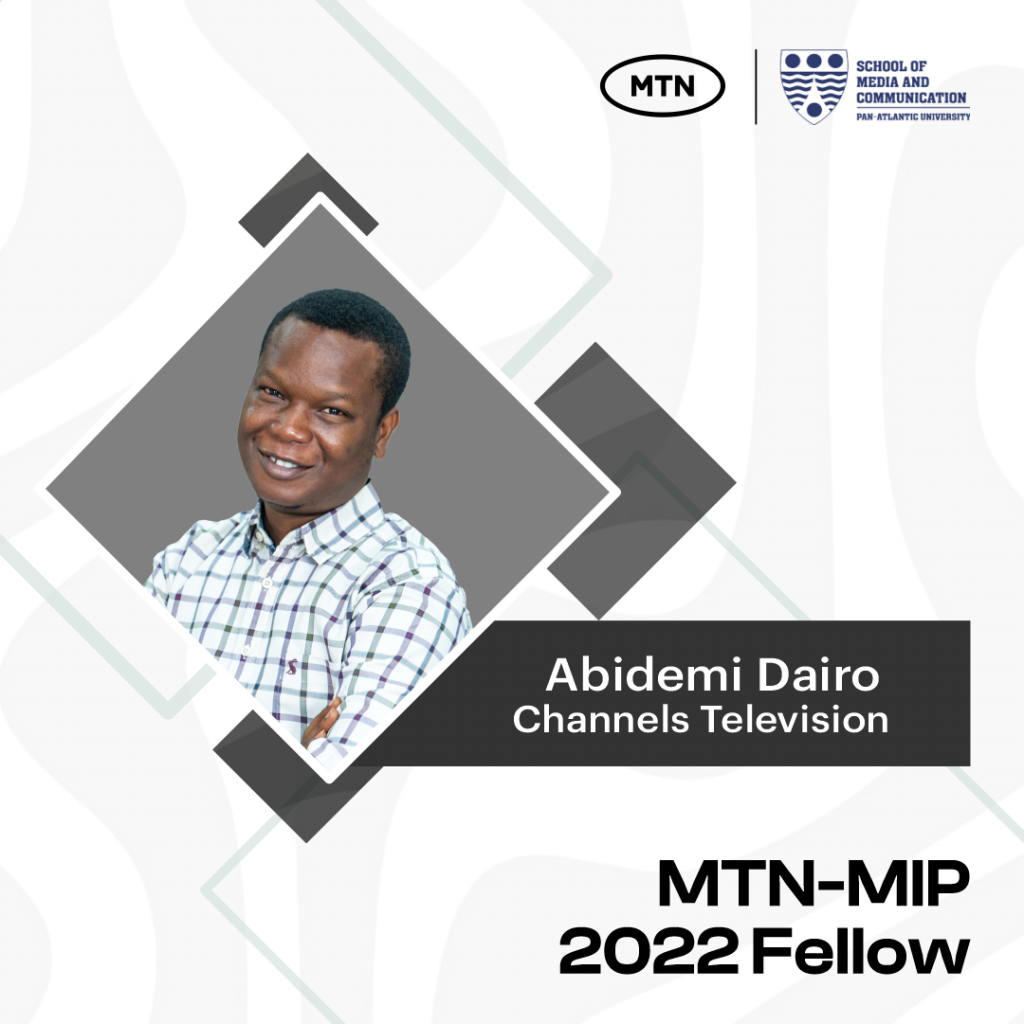
Abidemi Dairo is a Senior producer/reporter with Channels Television and has been reporting on the showbiz industry since November 2008. He is a seasoned journalist with a background in traditional print media. Before transiting to broadcast, Dairo received certification in journalism and special reporting from the Timbuktu Media Training Institute.
From movies to music, fashion and general lifestyle stories, he has reported from within and outside the shores of the country and has interviewed celebrities from Nigeria and abroad.
He has displayed exemplary knowledge of the showbiz industry and has been featured as a subject matter analyst on some other media platforms. He currently produces the daily Entertainment News on Channels Television.
- Adeyemi Adepetun
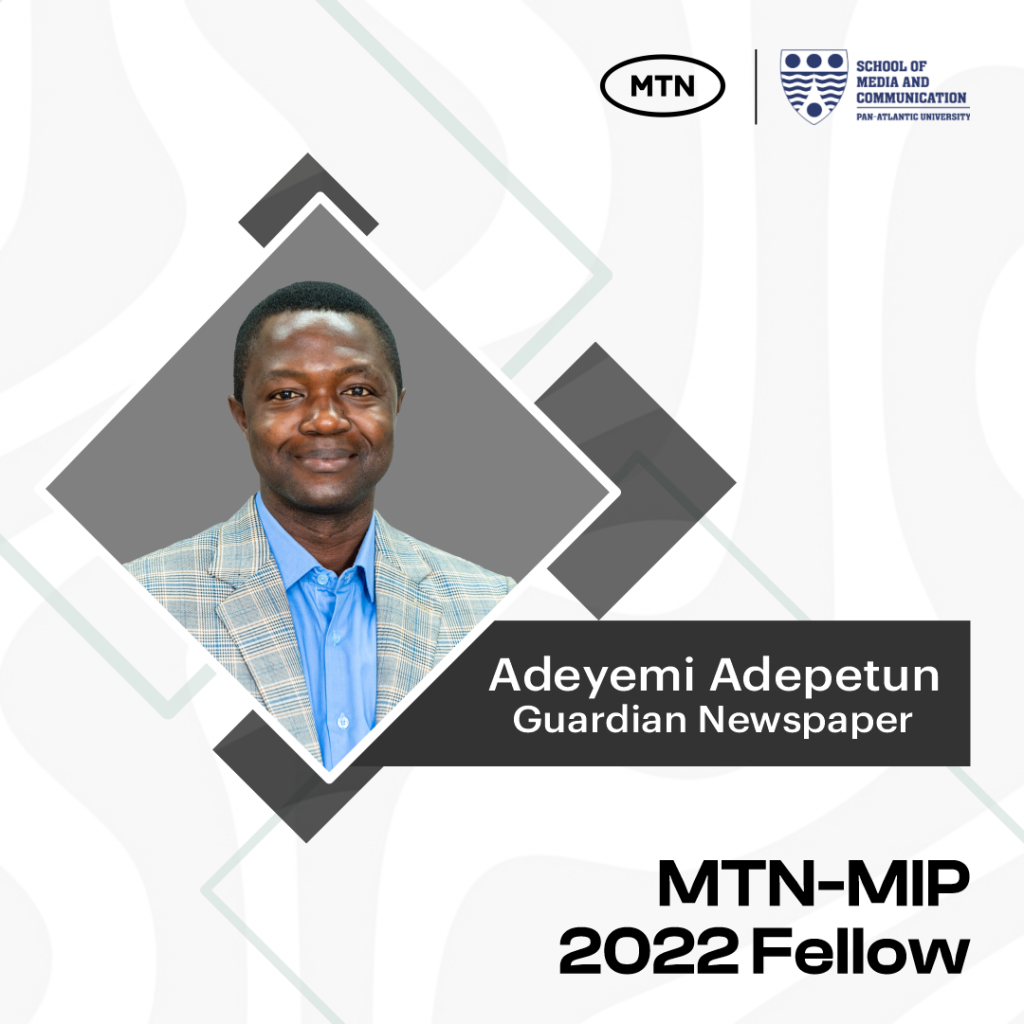
Adeyemi Adepetun is the Assistant Editor, Communications and Technology Desk at The Guardian Newspaper. He holds both an MSc and BSc in Mass Communications; MBA in Finance and HND in Banking and Finance. He is also an Associate of the Nigeria Institute of Public Relations (ANIPR).
Adeyemi has 15 years of journalism experience and nine years specifically in the reportage of information and communications technology (ICT). On the ICT desk, he has written several stories that have shaped the sector and equally set the agenda for government at the different levels.
He is a well-travelled journalist, within and outside Africa, for training, and coverage of telecoms, ICT and business conferences. He has also won several industry recognitions and awards. He is currently the MTN Telecoms Reporter of the Year 2020 at the prestigious Nigeria Media Merit Award (NMMA). Adeyemi is married with kids. He is gentle, inquisitive, helpful and loves reading and travelling.
- Agbonkhese Oboh
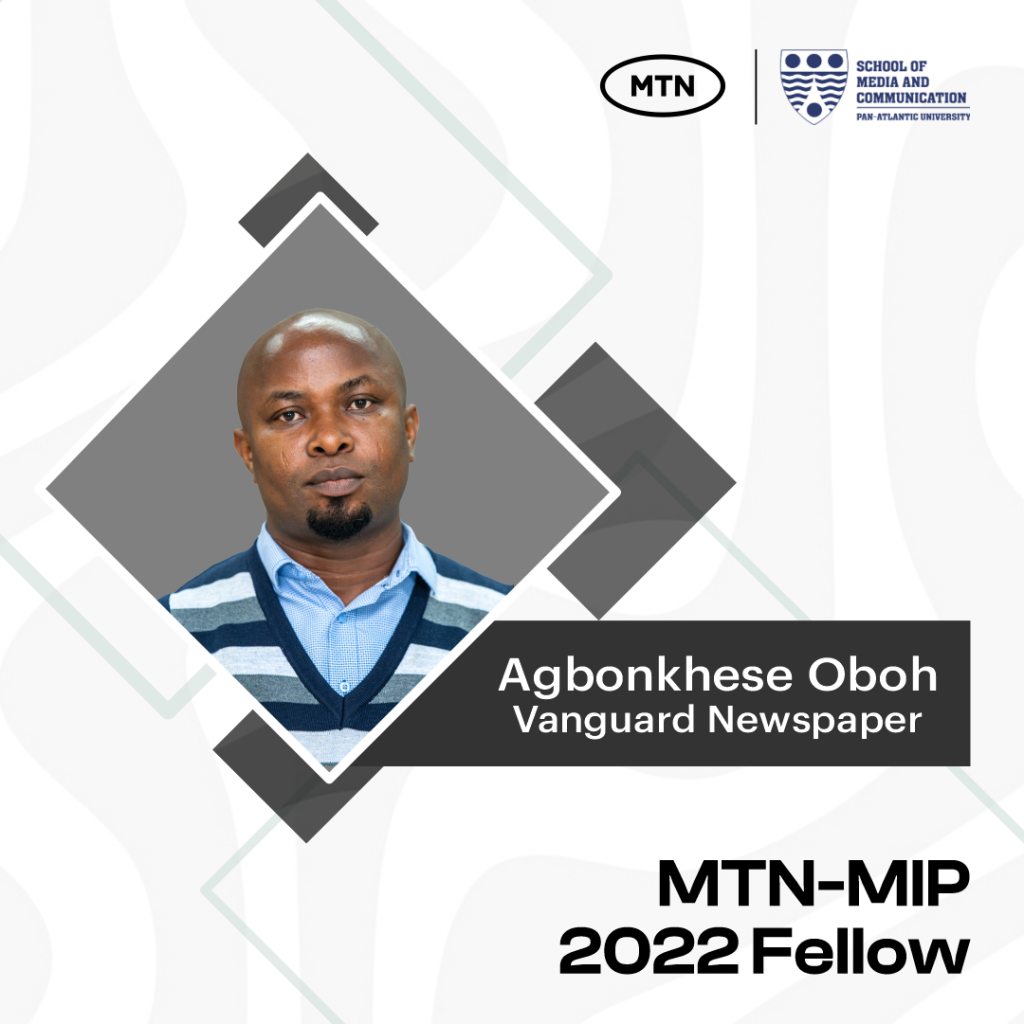
Agbonkhese Oboh is a hands-on and motivated team player. He is an expert communicator, writer and editor.
He is Deputy Online Editor – currently acting as Online Editor – of Vanguard Newspapers. He has a strong background in newspaper publication, networking in the media space and creating a presence in the multi-media space.
Currently, he is getting grounded in videography, video and photo editing, digital reporting, audience interaction and engagement and specific writing for a specific online audience.
He has a Higher National Diploma (HND) in Mass Communication, Auchi Polytechnic; Bachelor’s and Master’s degrees, both in Literature-in-English. The first is from Lagos State University (LASU), and the other, the University of Lagos (UNILAG).
Agbonkhese has been commended for his emotional intelligence and enjoys learning and teaching.
- Ameh Ejekwonyilo
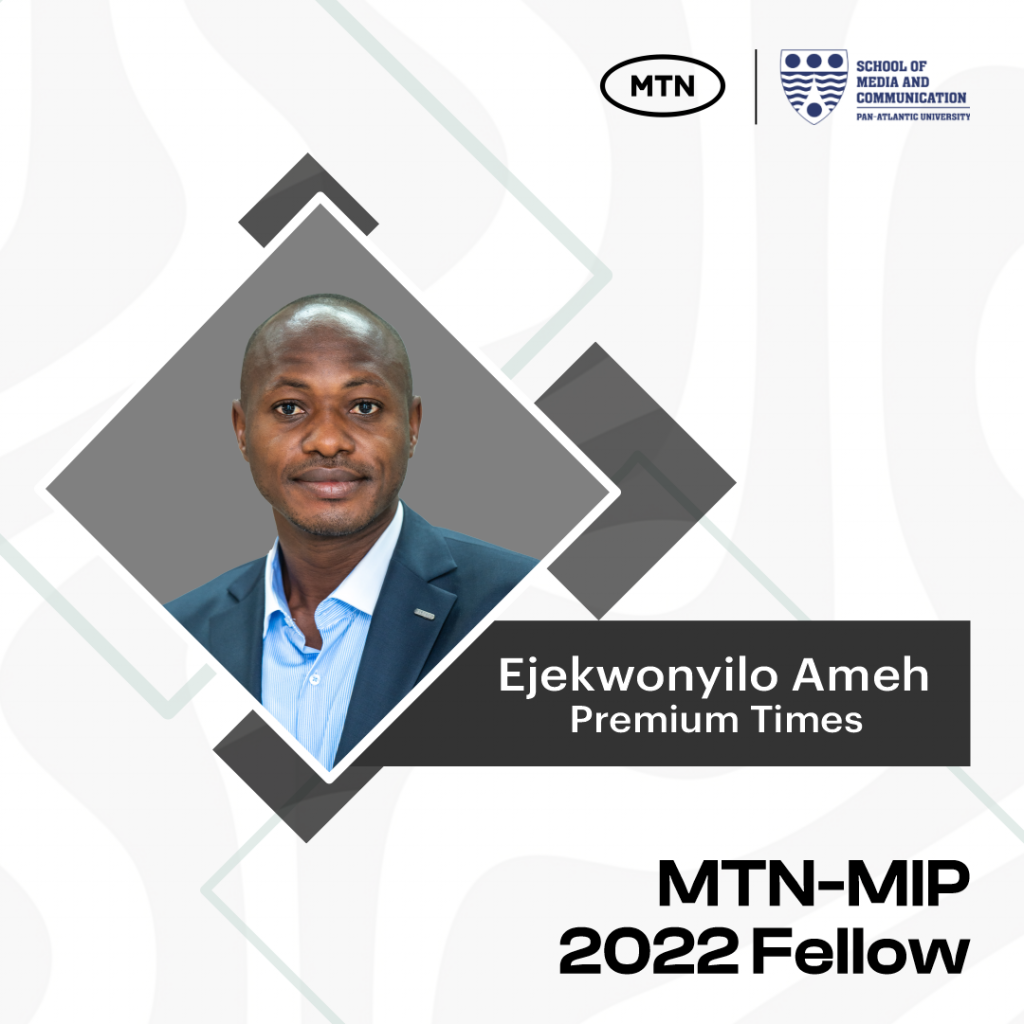
Ameh Ejekwonyilo is a Senior Reporter on the Judiciary, Human Rights and Anti-corruption Desk of Premium Times Newspaper. He is also a joint winner of Premium Times’ Best Story of the Year 2021.
Ameh is also a 2021 grantee of the COVID-19 Emergency Fund for Journalists, which was sponsored by the National Geographic Society, Washington, U.S.
He writes on the impacts of violent conflicts on vulnerable people.
He applied for the MTN Nigeria Media Innovation Programme (MIP) with hopes to acquire innovative skills in the telecommunications sector. He also sought to be a part of the MIP in order to horn his journalistic skills with a view to exploring entrepreneurial opportunities in the media and technology industry.
- Chima Akwaja
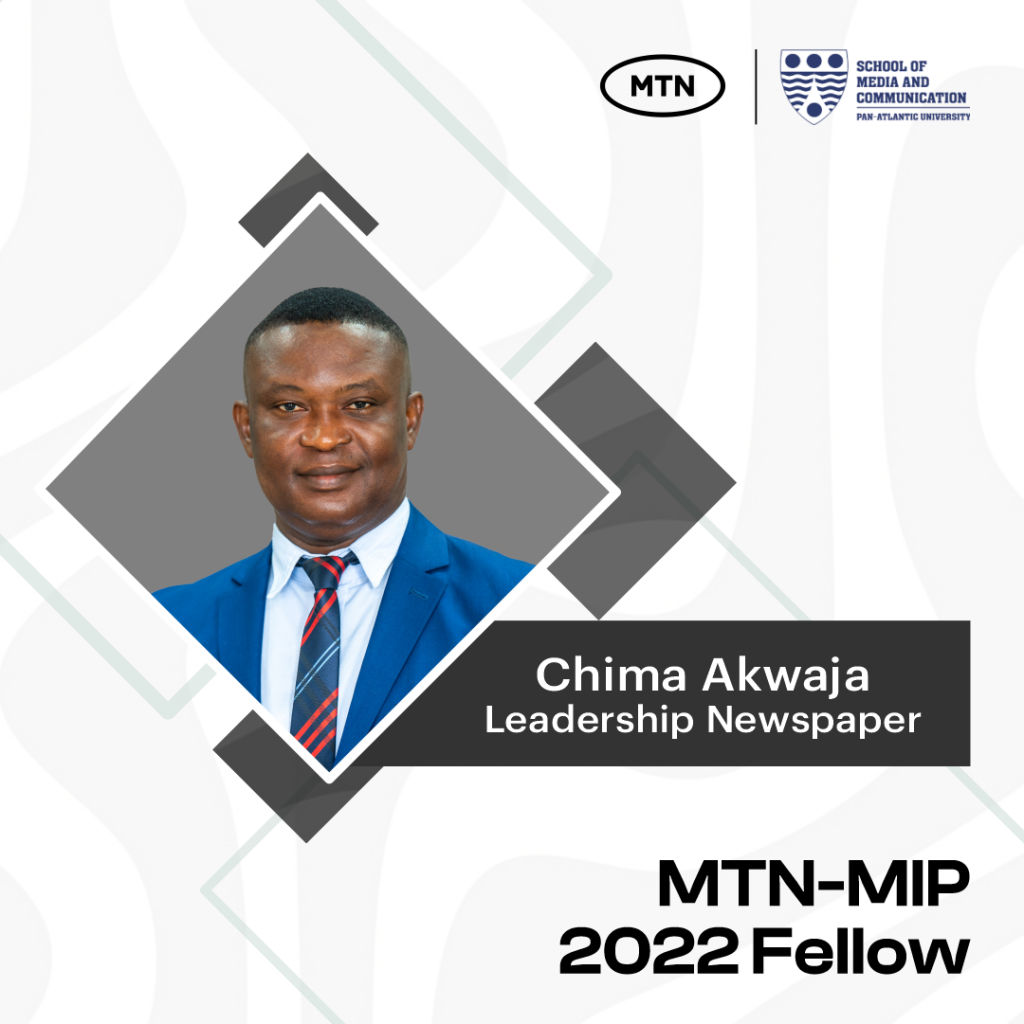
Chima Akwaja is the Technology Editor of Leadership.. He elevates ICT reporting in Nigeria with major exclusives, breaking news, and incisive and carefully researched feature articles.
Popularly called “The HOD”, Chima has covered numerous ICT events across the globe. His working experiences cut across National Newspapers, International Tech Magazines and Online Media. He was a Lead Contributor to the INVEST IN NIGERIA 2010 Handbook, a foreign investment publication for Nigerian High Commission, United Kingdom.
Chima is a winner of the 2006 AISI Media Awards of the ECA/AISI/IICD; 2009 IT Champion Award by the Information Technology (Industry) Association of Nigeria (ITAN); ICT Journalist of the Year at the Titans of Tech 2019 Awards; Most Outstanding ICT Editor 2019 and ICT Editor of the Decade 2020 at the Africa Digital Awards respectively.
Chima holds M.A and B.Sc degrees in Mass Communications from the University of Nigeria Nsukka (UNN) and Imo State University, Owerri (IMSU). He has attended training sessions at Pan Atlantic University, and the International Institute of Journalism (IIJ), among others.
- Damilola Fajinmi
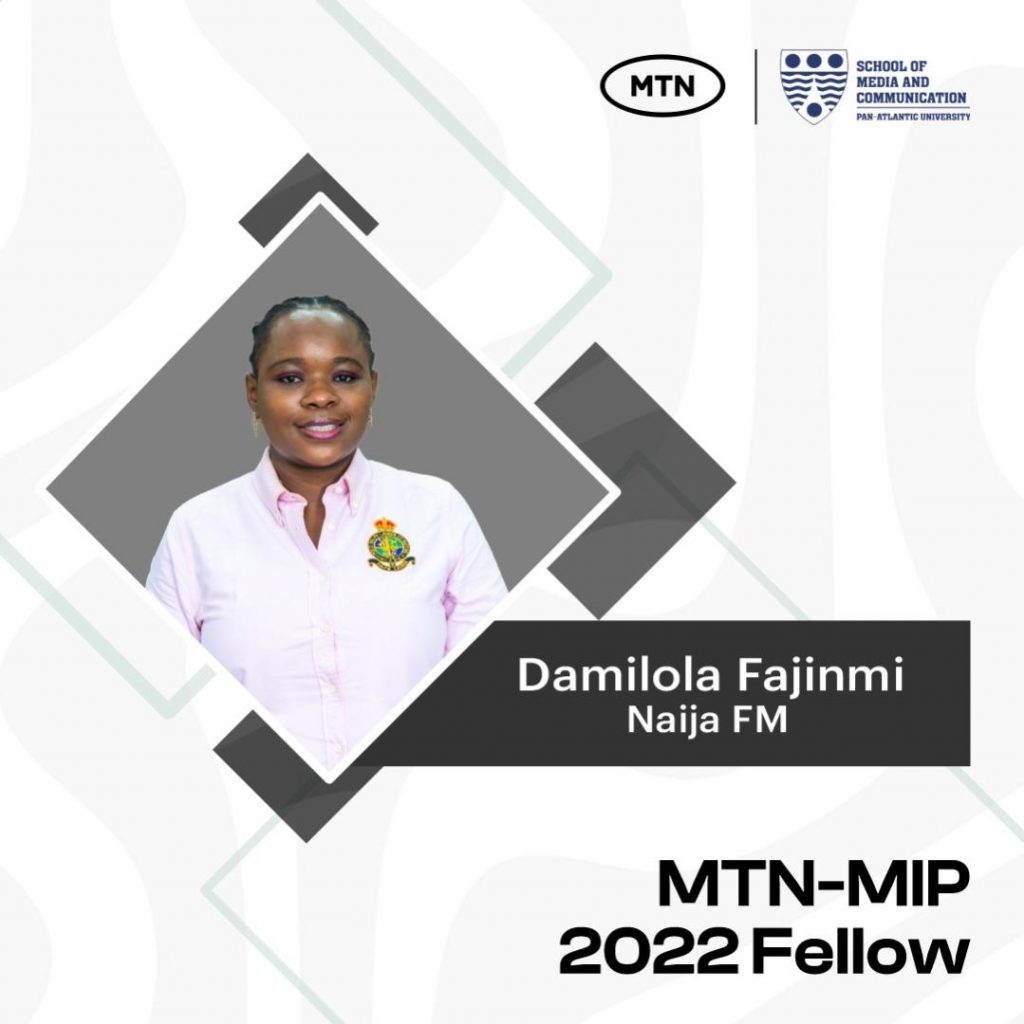
Damilola Fajinmi is a Media & Communications Professional with a demonstrated history of over eight years working in the media production industry. She is a radio broadcaster, content creator, voice actor, and scriptwriter, and is also skilled in marketing communications, and media buying.
Dami Faj as she is called by her faves is a family and health enthusiast. This passion led to the creation of her radio shows; Parenting Conversations with Dami Faj on Beat 97.9 FM Ibadan and Sabi Ya Health. She also co-anchors Toko Taya (Mr & Mrs ) an indigenous program on Naija 102.7 Ibadan.
She is outgoing and very energetic with strong communication and interpersonal skills. She is a well-organised professional with a track record that demonstrates self-motivation, creativity and initiative to achieve corporate and personal goals. In November 2021 she won an award for best performance in Media Plan Compliance in the southwest region.
Damilola is interested in young adults and she enjoys helping them discover who they are so they can think bigger and build better.
Damilola loves music, podcasts and checklists and loves to learn and apply. She enjoys quiet moments, reading, watching movies and spending quality time with her family.
- Daniel Adeyemi
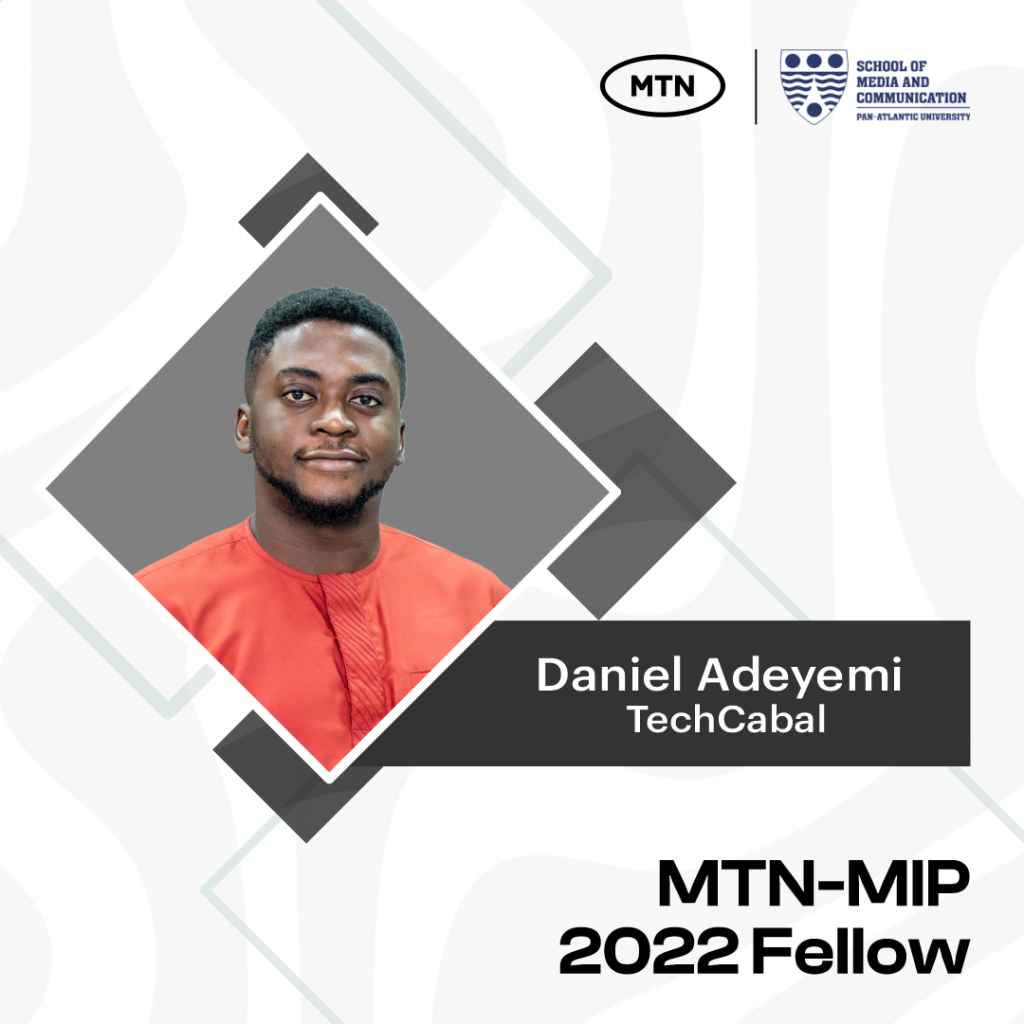
Daniel Adeyemi is curious about how technology is impacting the lives of Africans. As a senior reporter at TechCabal, Daniel writes mostly about big tech and high growth companies operating in Africa. He shares insights from investors in the African ecosystem through his bi-monthly column, Ask an Investor.
Before joining TechCabal, he spent the past 4 years working in the tech and consulting industry as an Accountant. Outside work, Daniel spends his time reading, playing/watching soccer, volunteering with the TEDxLagos team and occasionally painting masterpieces.
He applied for the Media Innovation Programme in order to gain an expanded view of the media space and to become more valuable to his organisation and society.
- Elsie Godwin
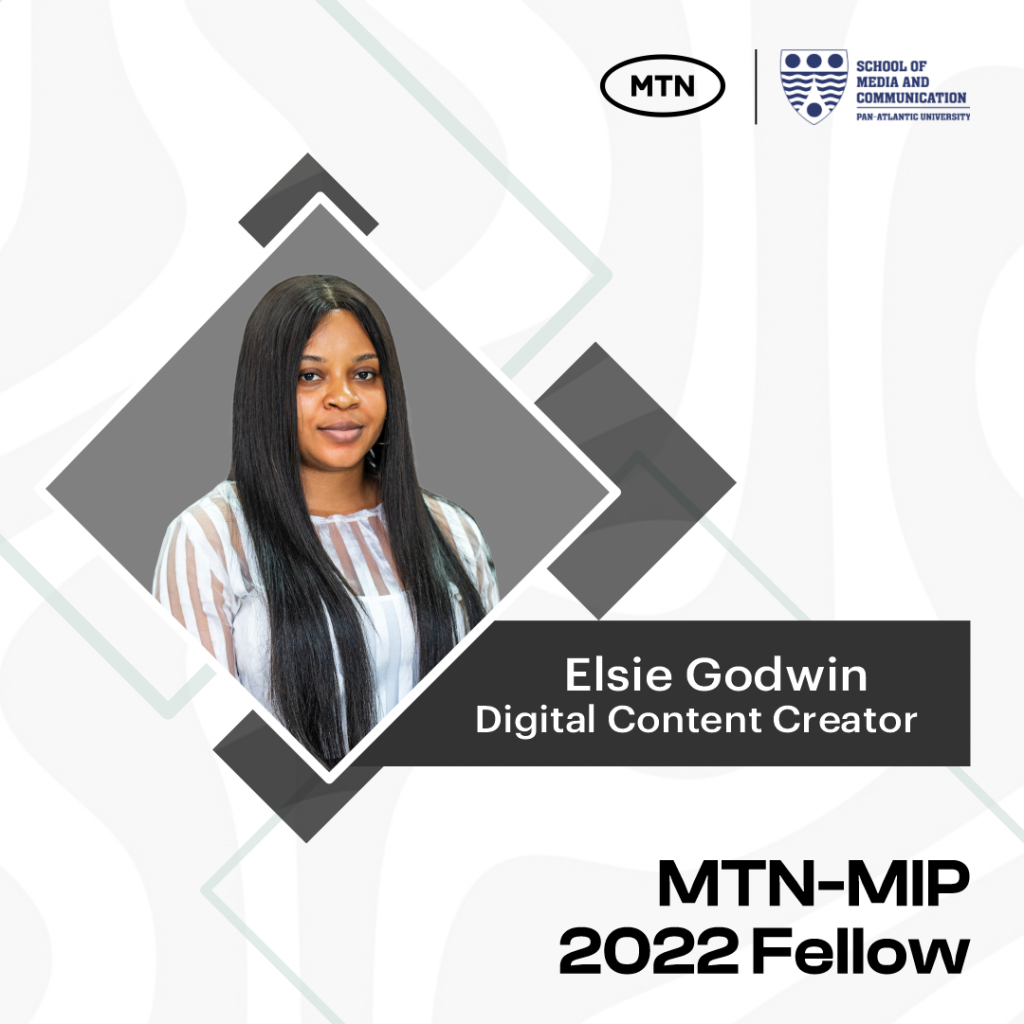
Elsie Godwin is a versatile Media Personality – TV/Radio Presenter & Producer, Blogger, Writer, Conversationalist, Content Creator, Facilitator and Marketing, Brands & Corporate Communication Specialist. She is a Co-Anchor & Co-Producer on WAYS Show Africa showing weekdays on DSTV CH 408/Startimes Ch 308/GOTV Ch 112 and the producer and Anchor of Reviews on the Couch.
Her passion for creating content and impactful conversation led her into broadcasting where she has interviewed over 300 successful businessmen and women, across different industries in Nigeria, Africa & Beyond. She is passionate about telling stories of and having conversations with successful people in order to help shape the Nigerian and African narrative and to mentor the younger generation.
In her capacity as a media influencer, she works closely with media agencies (BHM, Plaqad, H+K Strategies, DottsMedia, Alder Consulting, Anakle, etc) to help create and share amazing brand stories. She’s also a Google influencer affiliate.
- Esther Ndu
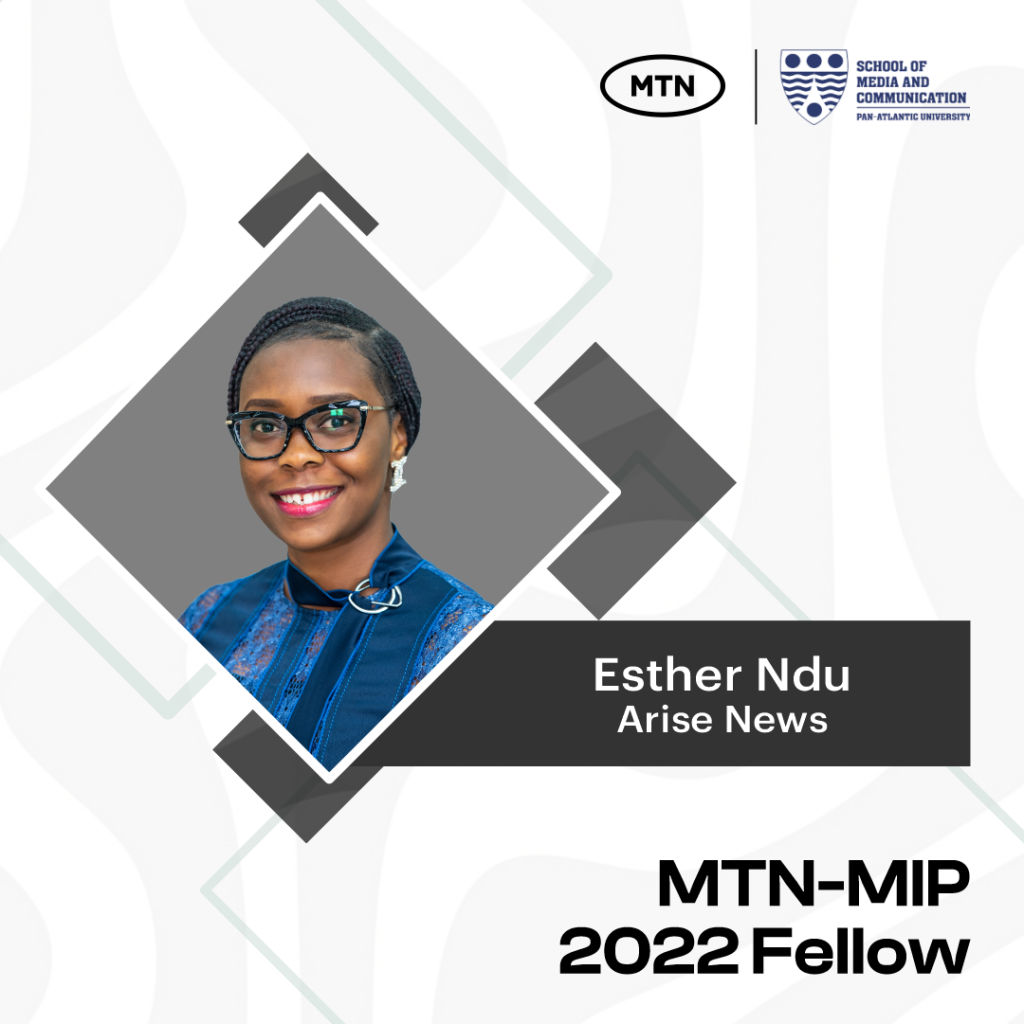
Esther Ndu is a News Producer currently working at Arise News. She co-produces the mid-day news, the exchange news and the entertainment news daily. In addition to her day job as a journalist, she is also a member of the board of trustees in a private primary school.
Esther believes in broadcasting authentic news in a simple and easy to understand manner. She has been named producer of the year and is reliable when given tasks.
Esther holds a BA in Classics from the University of Ibadan and a professional certificate in Basic Presentation from the National Broadcast Academy, Nigeria. She is always seeking knowledge in order to impact her generation meaningfully, as she believes that everything should be done to better humankind and honour God.
She joined the Media Innovation Programme in order to learn more about the nexus between information and communication technology and how to use these to improve the media sector in Nigeria.
She loves children and hopes to write about them. She also cherishes her quiet time.
- Mike Okwoche
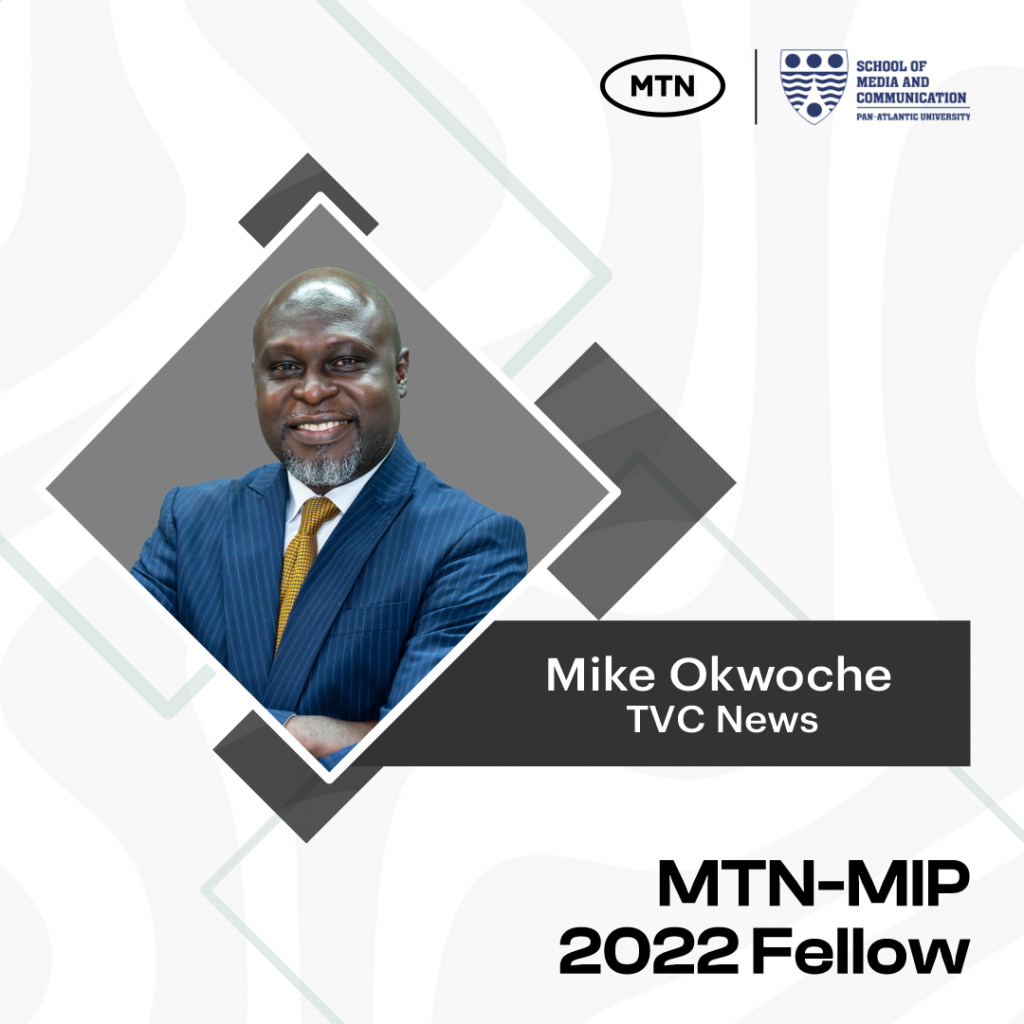
Mike Okwoche is an award-winning international broadcast journalist. He is a Senior Anchor and Head of Newscasters at Television Continental (TVC) in Lagos, Nigeria.
He is a graduate of Public Administration from the University of Maiduguri in Borno State. He also holds a Master’s Degree in Public Administration from the National Open University of Nigeria.
He is an Associate Lecturer at the Nigeria Institute of Journalism (NIJ), Lagos as an instructor on Broadcast Presentation. He is the Country Director of media and communications for Mater Africa, an international NGO on humanitarian aid based in Italy and Nigeria.
He is an Alumnus of the United States International Visitors Leadership Program (IVLP), a program he ran in Washington DC, Maryland, Massachusetts, North Carolina and California.
He has bagged the Newscaster of the Year award by the prestigious Nigeria Media Merit Award (NMMA) in 2019. He also won the Nigeria Broadcasters Merit Award (NBMA) in 2014.
He was the project coordinator of the Media Literacy campaign for the U.S. Department of State in Nigeria which was administered by AlumniTIES in Washington DC.
Mike is the President of the United States Government Exchange Alumni Association in Nigeria, an association created by the United States Mission in Nigeria to rally U.S. exchange alumni members in partnership to cause positive social change wherever they are.
He is the founder of Rewired Africa Media Network, a media content agency passionate about civic education, training, advocacy and mentoring in Nigeria.
He is married to Emem Okwoche with two lovely daughters, Elsie and Eliana.
- Nahimah Ajikanle Nurudeen
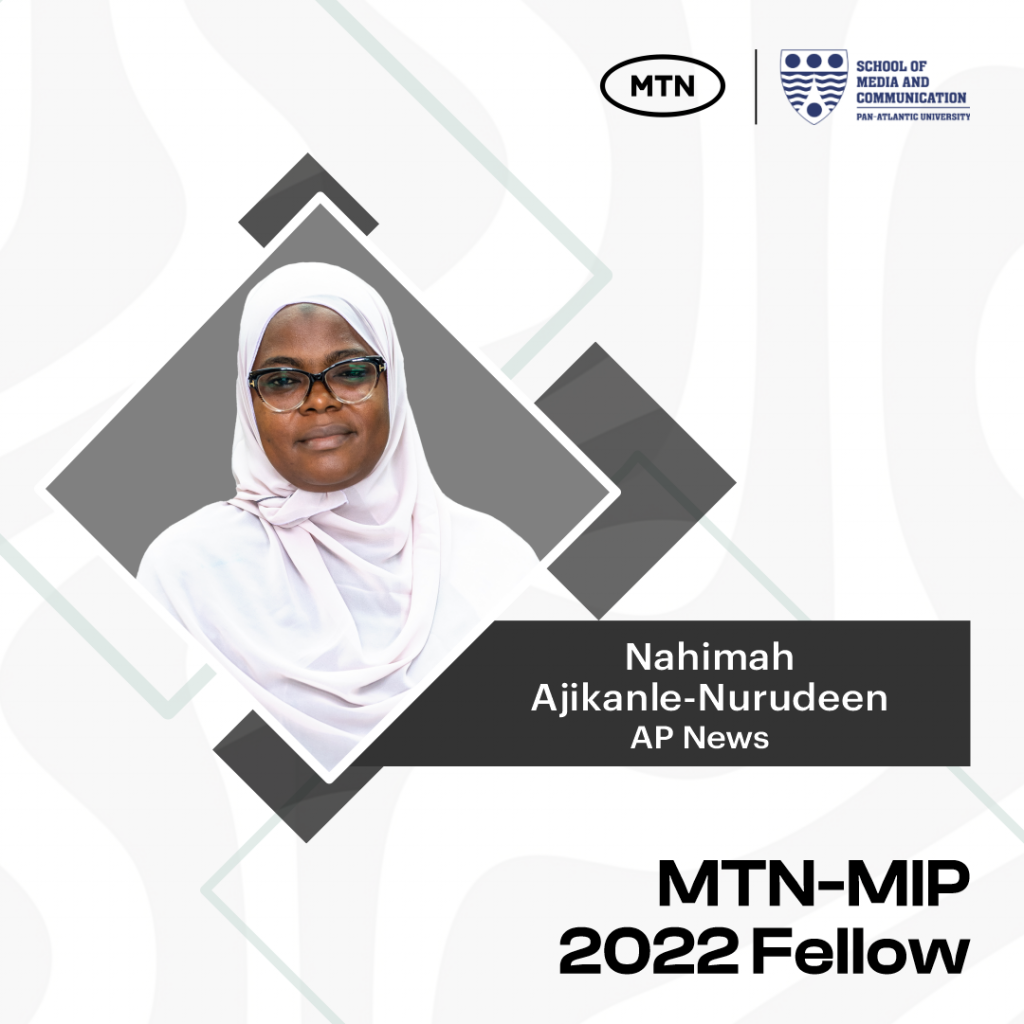
Nahimah Ajikanle Nurudeen is the Founder and Lead Strategist at TenticP Communications Nigeria Limited. She is a seasoned journalist and media practitioner with over 14 years of experience in the Media industry. She is currently the Managing Editor, AP News published by TenticP Communications.
Nahimah has a keen history of working in the media industry with excellent skill demonstrations in Corporate Communications, Strategic Planning, Marketing Communication, News Writing and Editing as well as Advocacy/ Communication for Social Change.
Having worked previously with Daily Trust newspapers covering several sectors of the Nigerian economy, she has deep knowledge of the nation’s business environment and social, cultural and political landscape.
Nahimah holds a Master’s degree in Mass Communications from the University of Lagos and is currently a PhD student at the Lagos State University, LASU, Ojo.
She is widely travelled for both local and international workshops and training.
- Peter Oluka
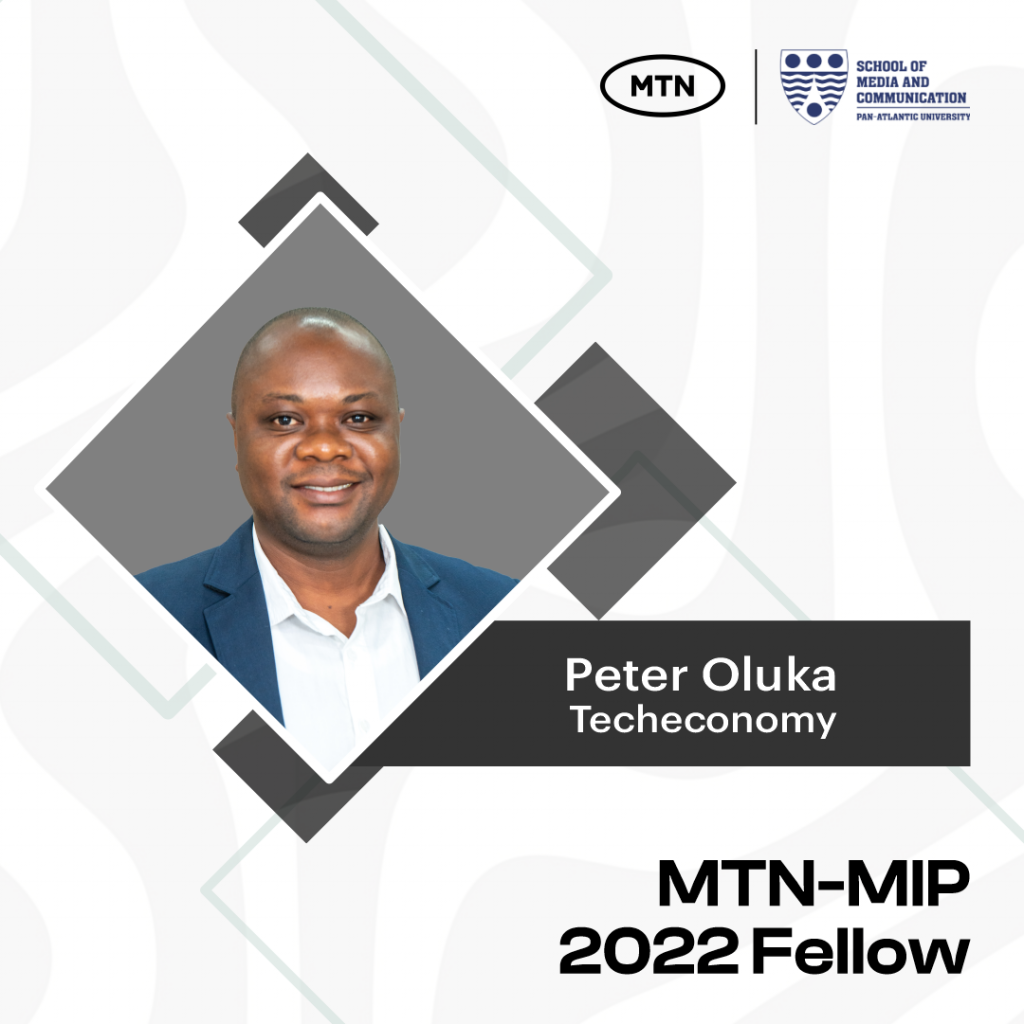
Oluka, Peter Ikenna is a practising ICT Journalist; Technopreneur, and Speech Writer, amongst other Media & Public Relations interests.
He is currently running TechEconomy.ng, a digital news platform that focuses on Business-People-Platforms-Institutions leveraging technology to enhance productivity and challenge the quantum of inadequacies in emerging economies like Nigeria/Africa.
Prior to that, he worked at the Nigeria CommunicationsWeek – a medium with a penchant for ICT reportage – as a Senior Reporter.
Peter started his mainstream journalism in 2010 with the Nigerian NewsDirect Newspaper based in Ogun State.
He also co-founded GrassRoots.ng, a news platform rooted in speaking for the global citizen. He also superintended the launch of NewsRepublic247.com.
Peter is currently the Vice President of Marketing & Communications, Njalo.ng; an online marketplace for ‘Classified’.
He obtained PGD (Mass Communications) from NOUN in 2015 and HND (Mass Communication) from the Institute of Management and Technology, IMT, Enugu in 2008.
Peter describes his quest for journalism and media practices as exceptional.
- Rasaq Ayinla
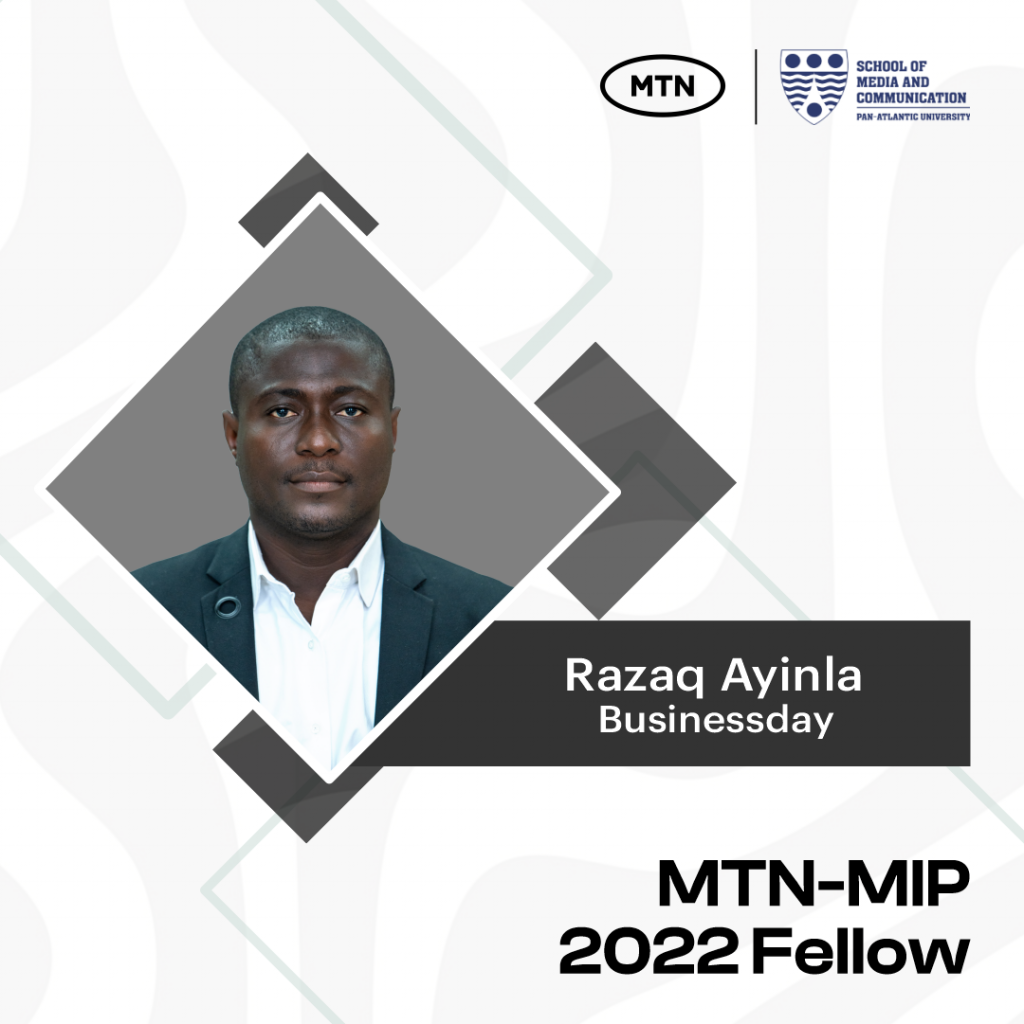
Razaq Adesanya Ayinla is a journalist with over 15 years of practice. He has valuable experience in both Broadcast and Print Journalism. He began his career as a Graduate Intern at Cub Reporter and graduated as Staff Reporter, Proof-Reader, Assistant Editor, Regional Editor and News Editor.
He currently prepares, collates and edits news stories and features from Southwest and Kwara States. He edits and produces news across western Nigeria for BusinessDay and makes daily editorial contributions to the paper’s general and specialised pages.
- Sakina Ahmed
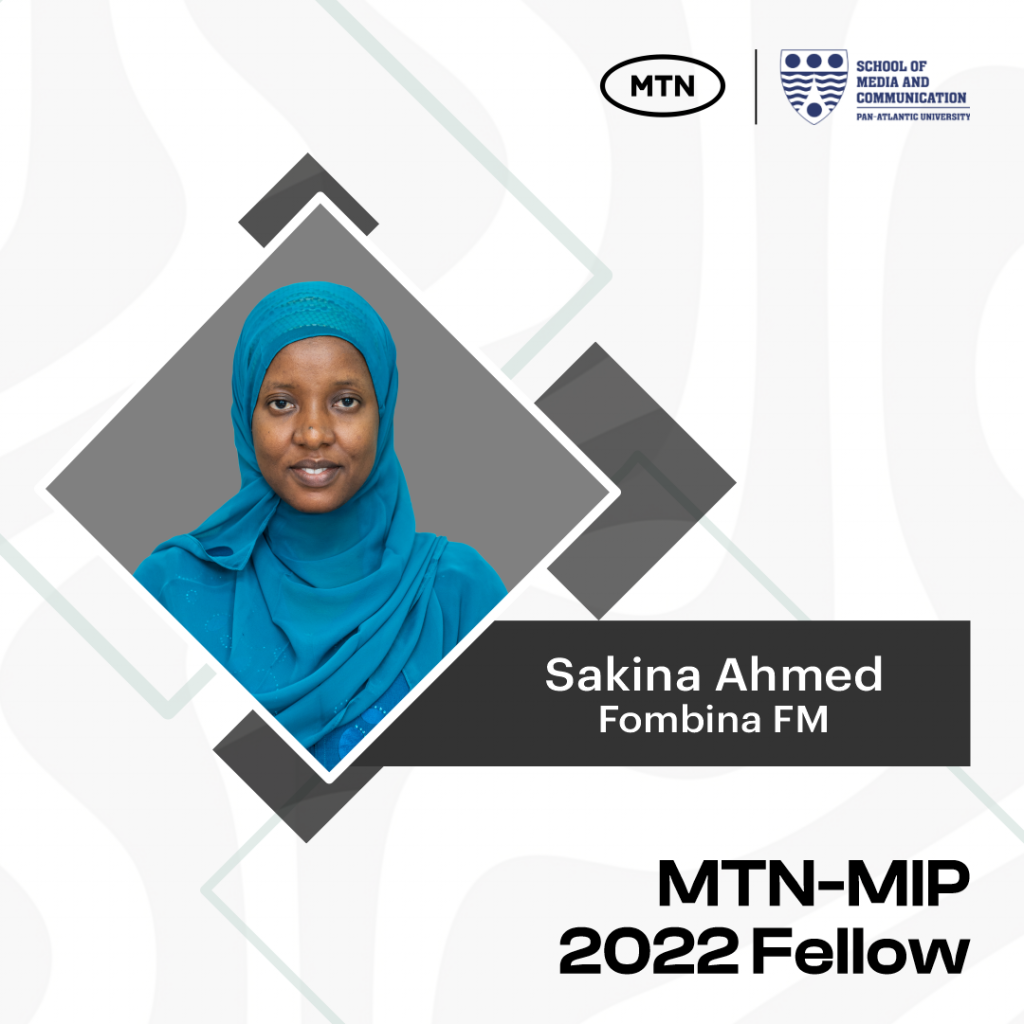
Sakina Ahmed began her career in broadcast journalism when she was employed by the Federal Radio Corporation of Nigeria as an Assistant Translator and posted to one of its FM stations in Yola in 2011.
She is currently working as a Reporter for Fombina FM Yola with a passion for reporting on health, the environment and women and girl child rights.
She holds a bachelor’s degree in Language and Communication Arts from Modibbo Adamawa University, Yola
She applied for the MTN Media innovation program to gain the required innovative skills needed to recognize opportunities that will help her improve her career prospects and equally be an important contribution to society.
- Samson Akintaro
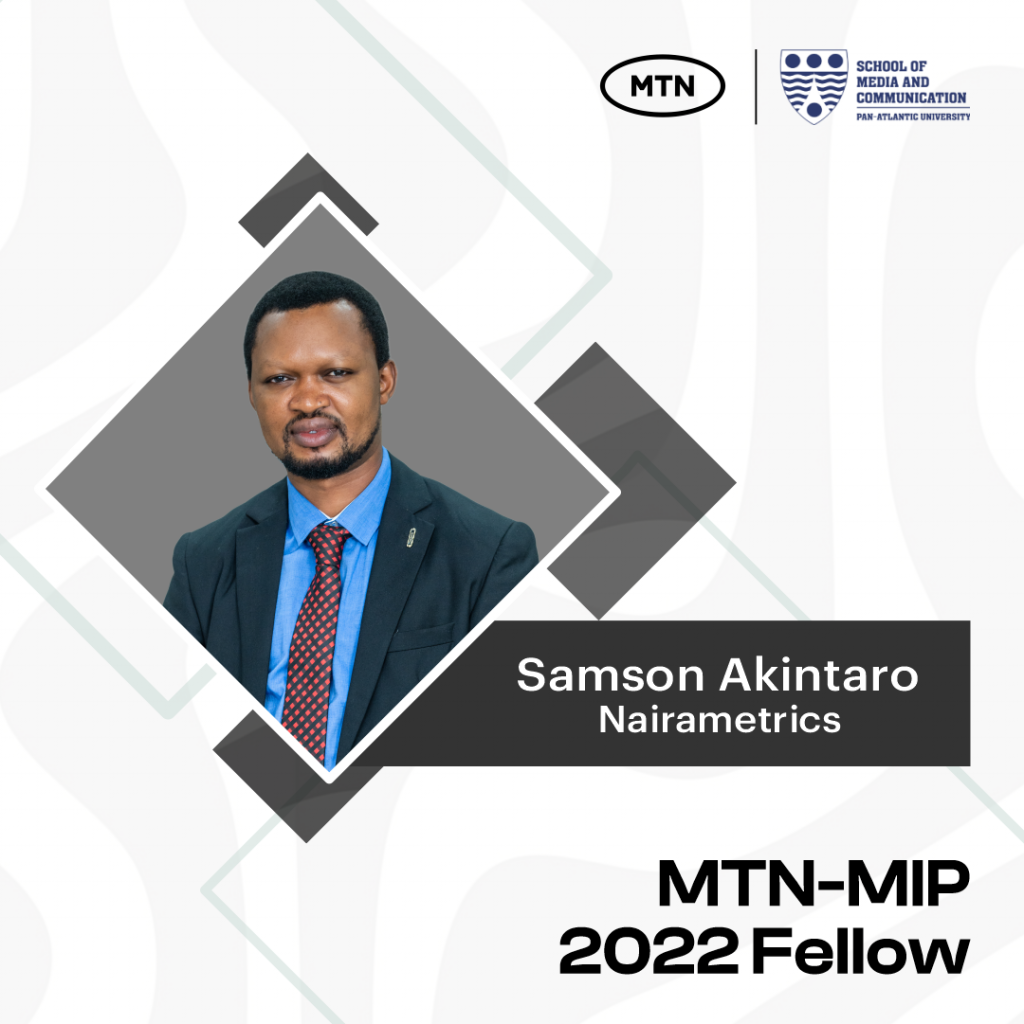
Samson Akintaro is a seasoned journalist with a knack for technology reporting. Akintaro started his journalism career in 2005 at the now-defunct Financial Standard Newspaper, from where he was drafted to the ICT Desk as a young reporter.
Being a versatile reporter, he joined another special publication, Stockswatch, in 2008, where he became a Capital Market correspondent for the paper. However, his love of tech reporting saw him move to a specialised and one of the leading ICT Magazines in the country, IT & Telecom Digest, in April 2011.
At IT & Telecom Digest, he rose from the position of a reporter to become a senior editorial staff of the publication, taking responsibility for the editorial content of the Magazine, while projecting the industry to the world through his reportage.
In April 2018, he joined the New Telegraph Newspaper as ICT Editor, a position he currently occupies. His incisive and illuminating writings about the Nigerian ICT/Telecom industry earned him a nomination for the Telecom Reporter of the Year in 2019 at the Nigeria Media Merit Award (NMMA). In 2020, he emerged as ICT Reporter of The Year, at the prestigious Africa Digital Awards (ADA).
In April 2022, he joined Nairametrics as Tech Analyst, where he continues to report and analyse issues in the ICT industry.
- Temitayo Jaiyeola
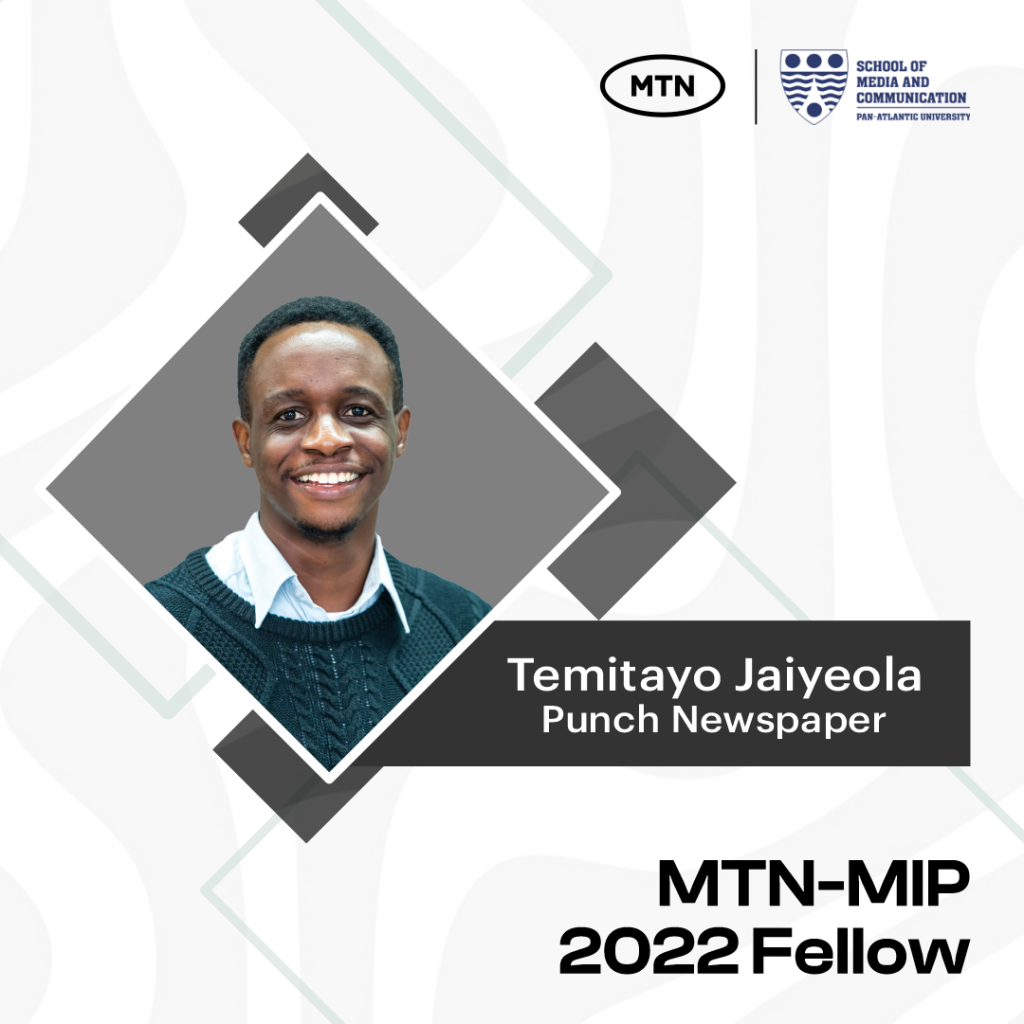
Temitayo Jaiyeola is a technology correspondent at the PUNCH newspaper. He is interested in stories that explore the intersection between tech and human activities. He is a data enthusiast, loves numbers, and insists that he should have studied Economics.
He writes prose and poetry when he isn’t haunted by the ghost of deadlines. Some of his writings have received positive nods — he was second runner-up for the Quramo Writers Prize in 2019.
When he is not writing or reading, he often folds inwards or takes random strolls.
- Ugo Unwuaso
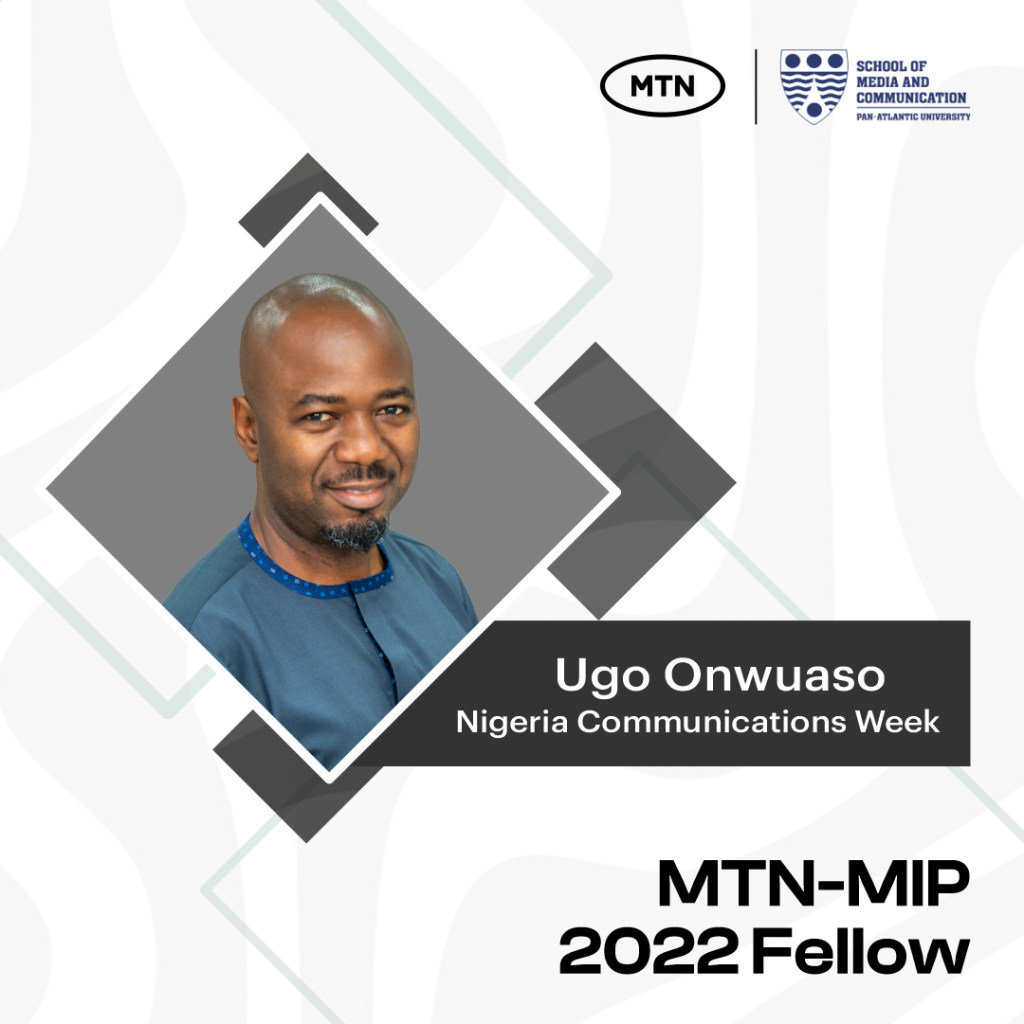
Onwuaso Ugochukwu Francis, is a tech and ICT enthusiast, working with Nigeria CommunicationsWeek as a Senior Correspondent covering ICT, Business and Logistics.
He believes that technology is at the core of our ever-changing and evolving world and has written several articles on technology since he started covering the sector.
He has received several professional and capacity trainings on Information and Communications Technology (ICT) organized by reputable companies like Google, Microsoft, Nigerian Communications Commission (NCC), National Information Technology Development Agency (NITDA), etc.
Ugochukwu is the 2019 and 2021 winner of CommunicationsWeek’s Best Employee of the Year award.
Ugochukwu is a native of Awka, in Anambra State and is married with four beautiful children.
He holds a post-graduate degree in Public Administration (MPA) from Lagos State University, and an HND degree in Business Administration and Management from Lagos State Polytechnic, Isolo.
- Uhuotu Omilabu
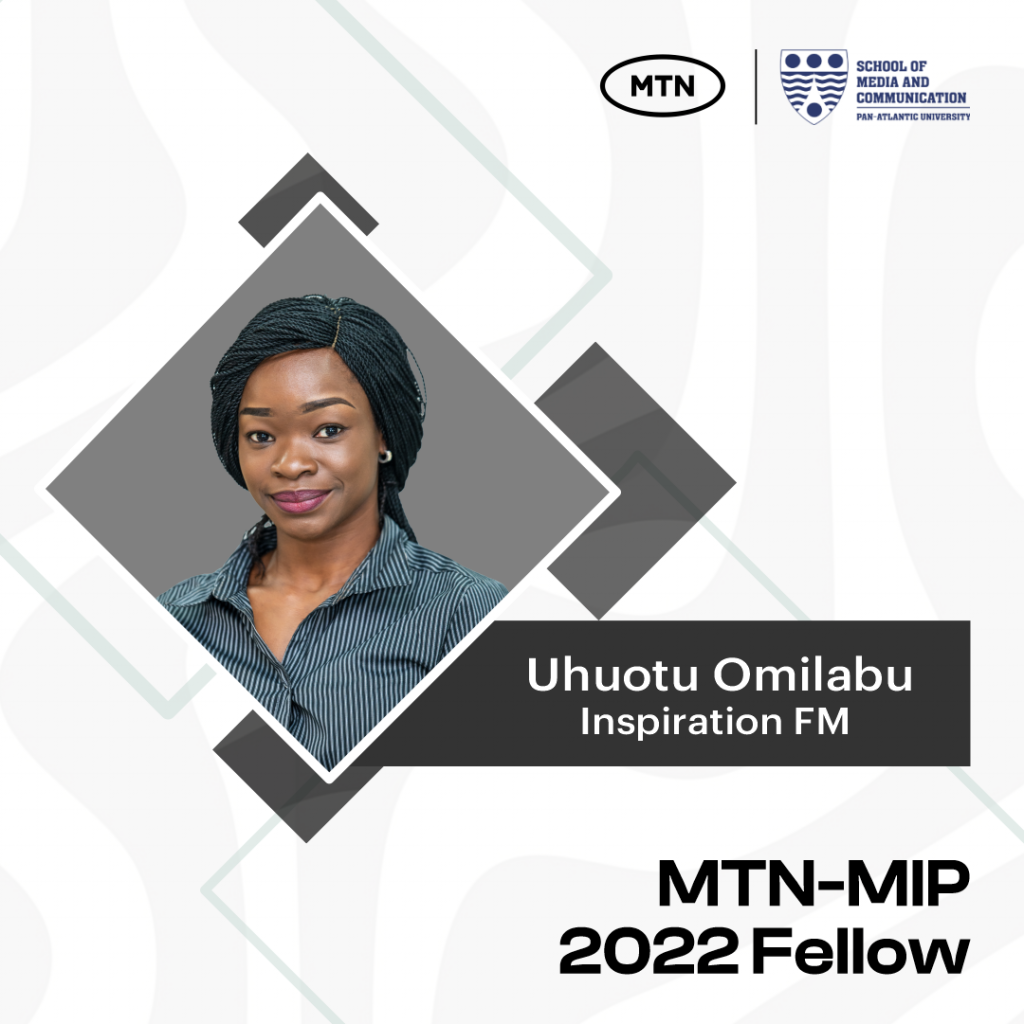
Uhuotu Omilabu is a young, aspiring and resourceful broadcast journalist with a strong passion to stay above mediocrity as a reporter, editor and compere.
With a degree in Communication Arts, Uhuotu has contributed to the media space with reports on topical issues bothering on women and girls’ issues, health, education, agriculture etc.
She has been a part of several training sessions within her state of practice and across the nation. Uhuotu currently serves in the News Department of Inspiration FM, Uyo as a producer, reporter, editor and show host which highlights her versatility in the media profession.
Holding fast to honesty and integrity as core values, her philosophy is to treat people the way you want to be treated. She strongly believes that this will make the world a better place. Uhuotu is married with children.
- Vanessa Obioha
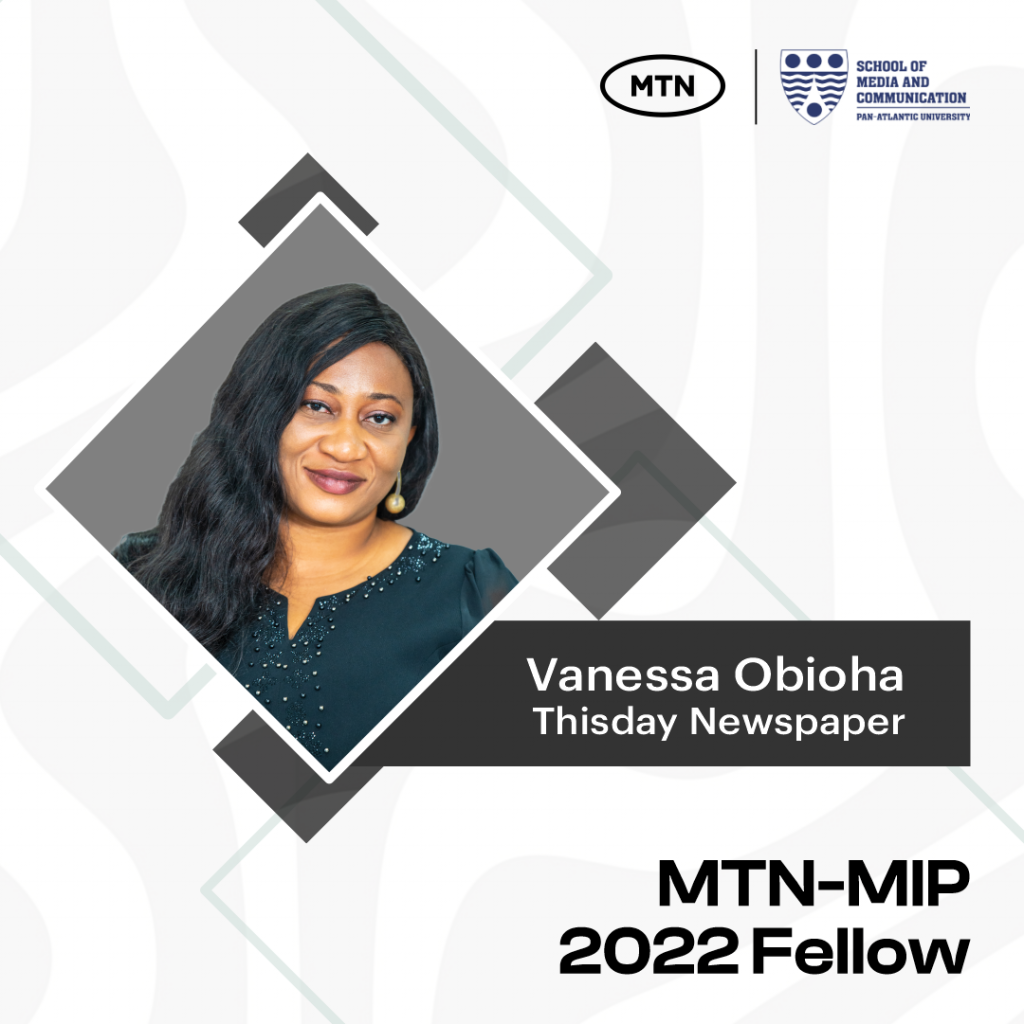
Vanessa Obioha, a writer and a journalist joined THISDAY Newspapers in 2012 as a contributing writer. She became a staff member in 2016, covering lifestyle and entertainment. However, she has ranged broadly across the newspaper pages, reporting on politics, business, sports, tourism, human interest, and other subjects.
She has also profiled prominent personalities in the entertainment and lifestyle sector in the lifestyle section of the Sunday paper, The Glitterati.
In 2015, she was nominated for the prestigious Nigeria Media Merit Awards.
Vanessa is also interested in poetry and has taken a screenwriting course with the New York Film Academy. She is a graduate of the Nigerian Institute of Journalism with distinction in Mass Communication.
With an eclectic taste in music, she enjoys listening to beautiful sounds, watching films and TV series, reading, travelling and discovering new cultures.
- Wasilat Azeez
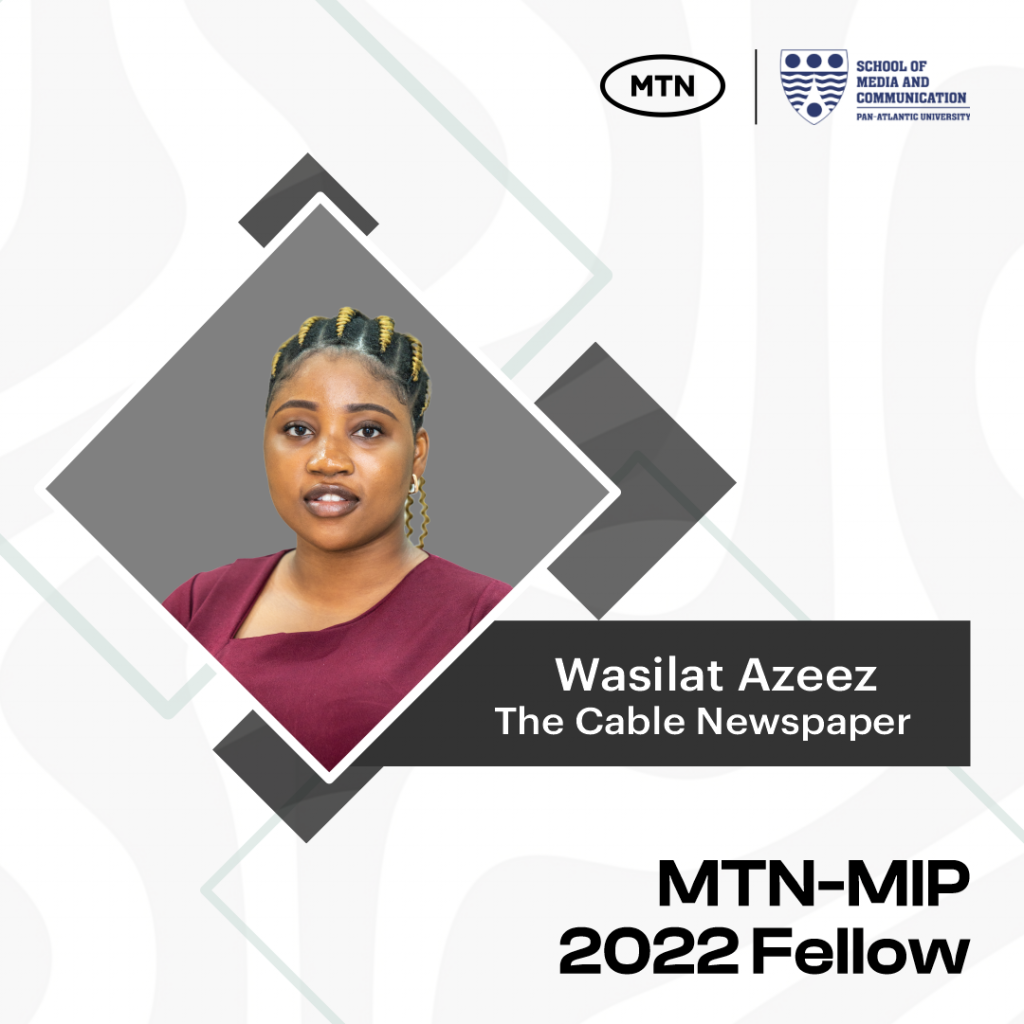
Wasilat Azeez is a finance journalist, data enthusiast and fact-checker. She holds a first-class honours bachelor’s degree in Mass Communication from the University of Lagos.
She began her journalism career as a graduate intern with the Cable Newspaper Journalism Foundation (CNJF) in 2020. Upon completing the programme, she got automatic employment at TheCable, Nigeria’s independent online newspaper.
She is passionate about spotlighting women and persons with disabilities (PWDs), especially those who have made outstanding records in their respective fields by overcoming barriers and beating the odds to reach their goals.
As a budding academic in gender and development, Wasilat has co-authored a research paper on The Role of Associations of Women Journalists in Promoting the Interests of Female Journalists in Nigeria.
She believes that the MTN-MIP will help her grow in her journalism career by increasing her knowledge of the telecoms industry.